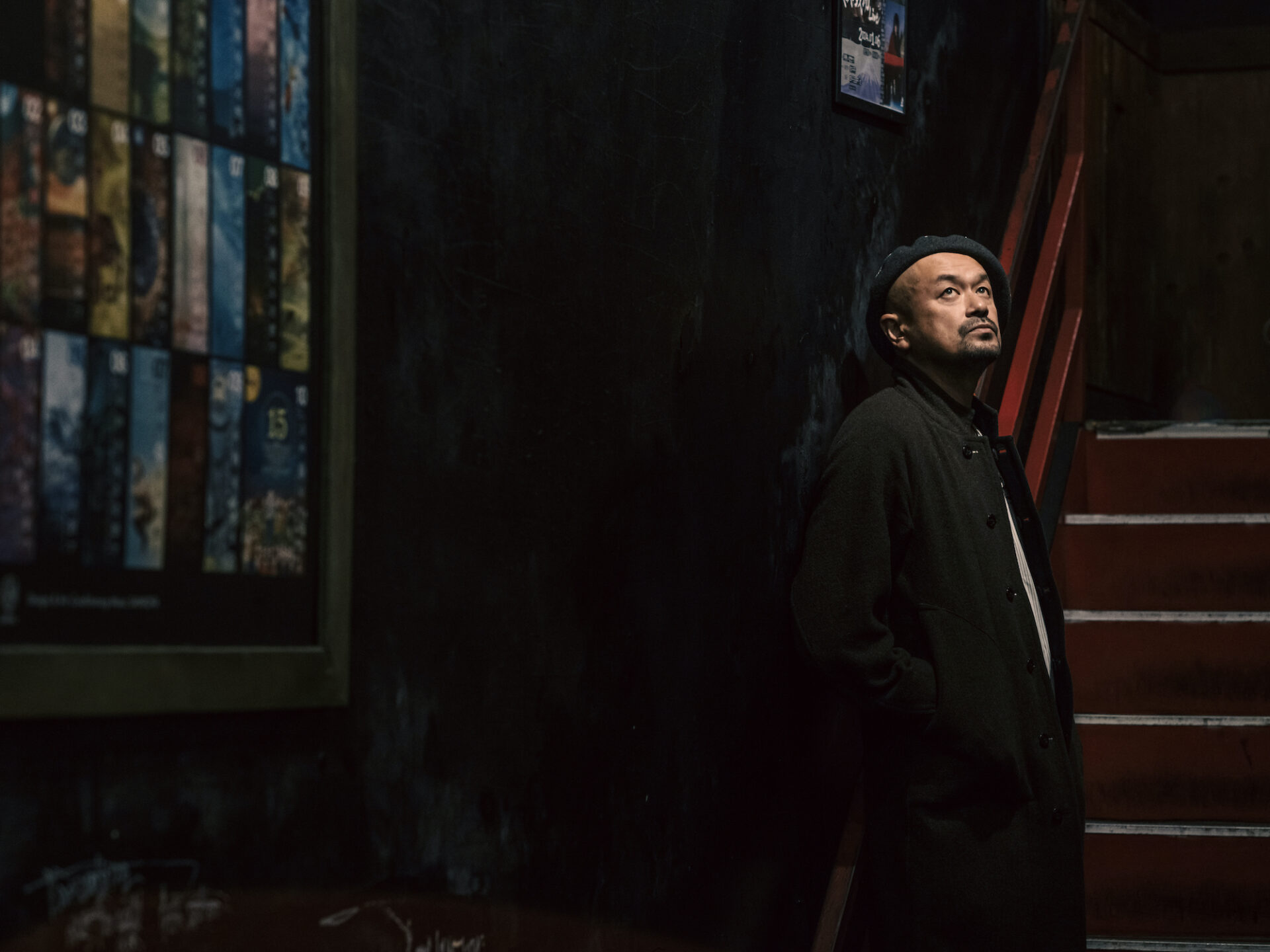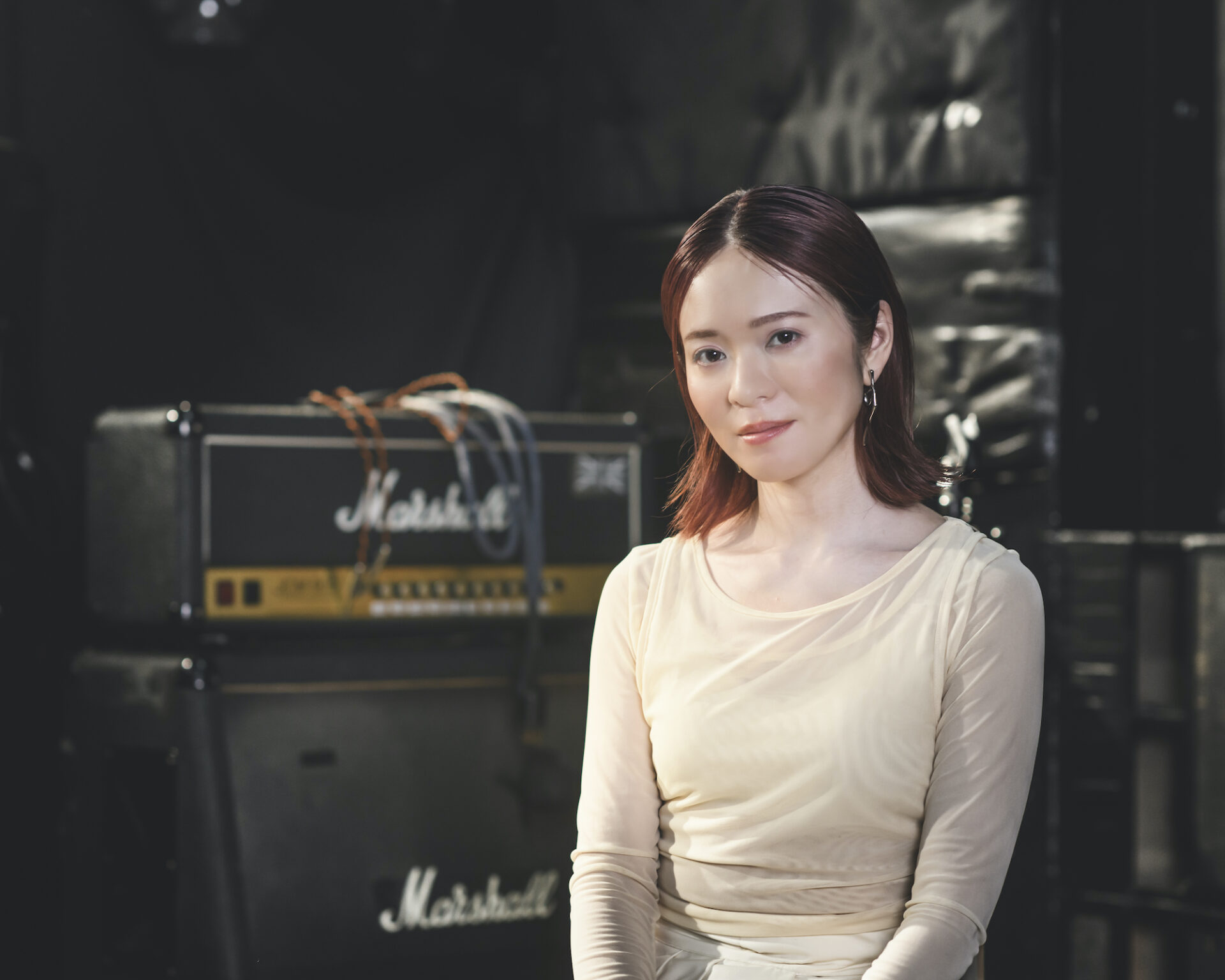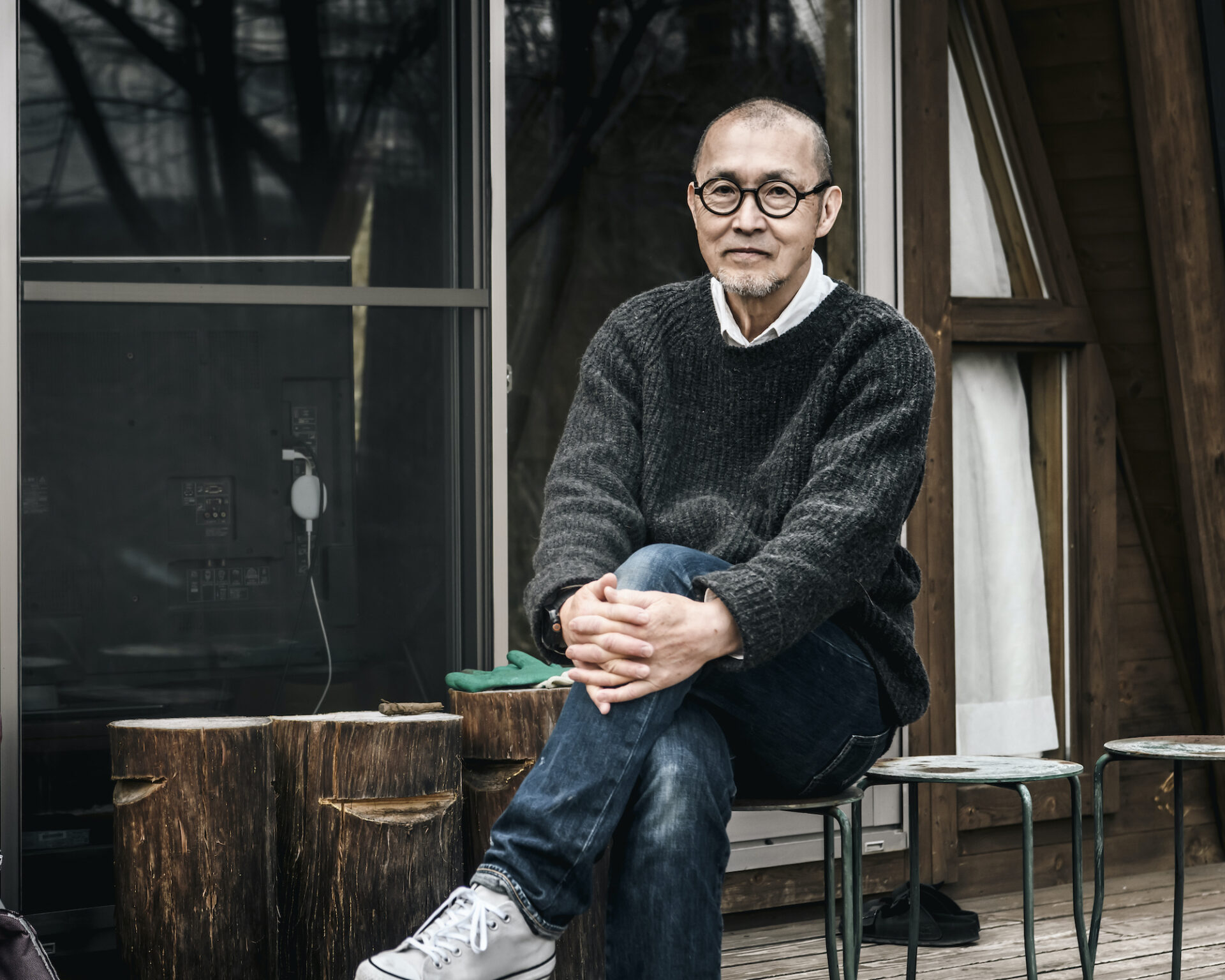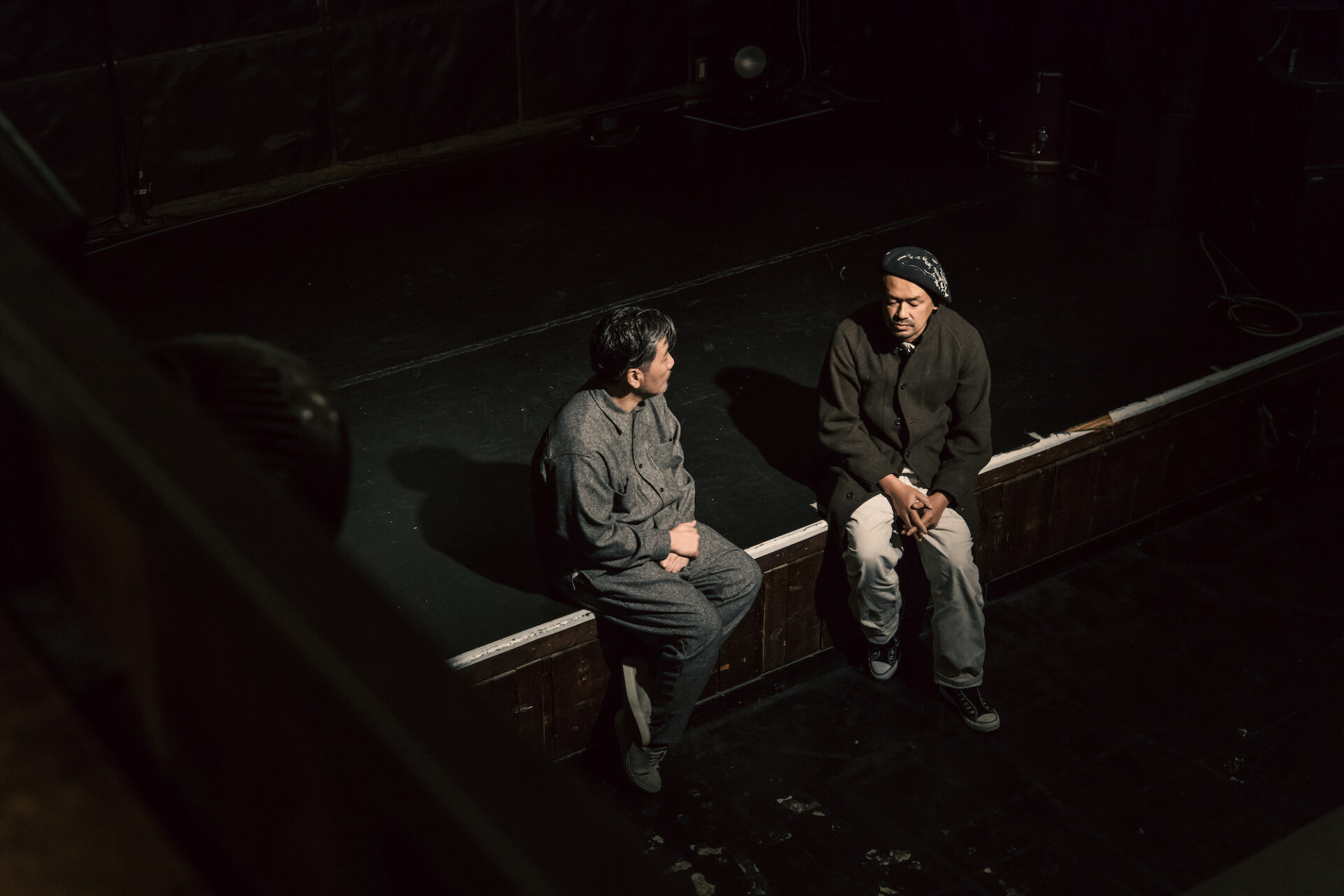
2024-02-24
Vol.3
Musician and Poet
Madoki Yamasaki(part 2)
-
Views of Life and Death in Current Society
-
Sound as Word and Communication Method
-
Quantum Thinking to Uncover the Essence
-
Balance of Creativity and Sociality
-
Act as Megaphone to Spread Culture in Society
Poems, music, graffiti, and tagging…The man writes down the surge of his emotions with energetic words. What emerges from the waves of words is a sharp, powerful message for a society in deadlock, but at the same time, it is a hint to break through the current situation. “Every expressive activity I make is for creating a place for words,” he says. What does this extraordinary creator think about the power and universal value of words?
Inviting Mr. Madoki Yamasaki, who is the leader of one of Japan’s leading poetry jazz bands, F.I.B. JOURNAL, and is also active as a poet and an artist, we deeply discussed a wide range of topics, including each other’s interests and the plan of collaboration.
(Click here for the first half of the interview)
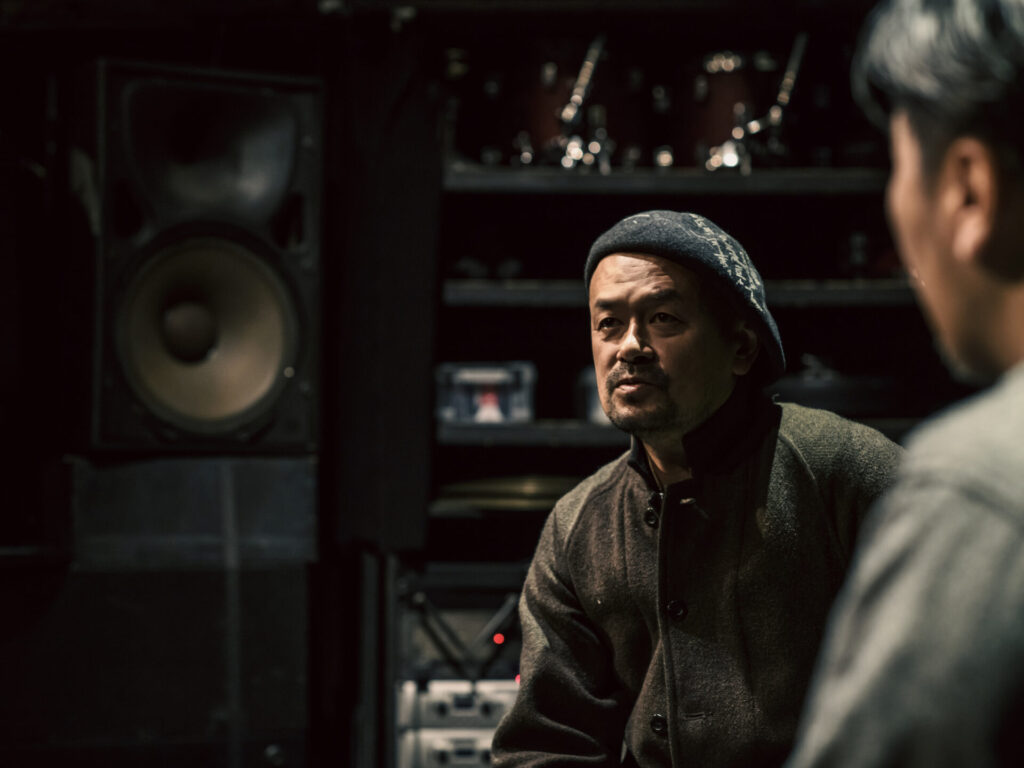
“Building the future means building a bridge everyone can cross, excluding no one (Yamasaki).”
——Mr. Yamasaki, do you have anything you want to ask Mr. Shigeta, taking this oppotunity?
Yamasaki: Yes. Seeing Mr. Shigeta’s activities, I often feel the creative and social parts are very much linked to each other. Usually, those two are contradictory, but you have maintained the balance between the two even after the business scale has grown. Even keeping creative activities itself is hard enough; how can you maintain such a balance? I would like to hear the secret today.
Shigeta: I’ve recently come to think I was blessed with opportunities, and things went well with runs of luck. This year, we spun off our cosmetics brand OSAJI to accept the investment of trading companies and other investors. When it was reported in economic papers, I received many comments on Facebook saying, “I thought scaling the business
and being creative were contradictory.” You just said I have maintained a balance of creativity and sociality, and I am most pleased to be recognized in that way as a business person. After all, it is not a good thing for creators to make decisions on the premise of small business scale.
Yamasaki: I agree. When I was having a drink with a singer-songwriter Caravan at Chigasaki the other day, he said, “You often call yourself “niche,” but I know that is not what you really think. Then, you shouldn’t describe yourself in such a way, because what you are doing is “invention.” From now on, you are not allowed to use the word.”
Since words are vessels of awareness, once you use a particular word, you are unconsciously influenced by it. I think that is what he was concerned about.
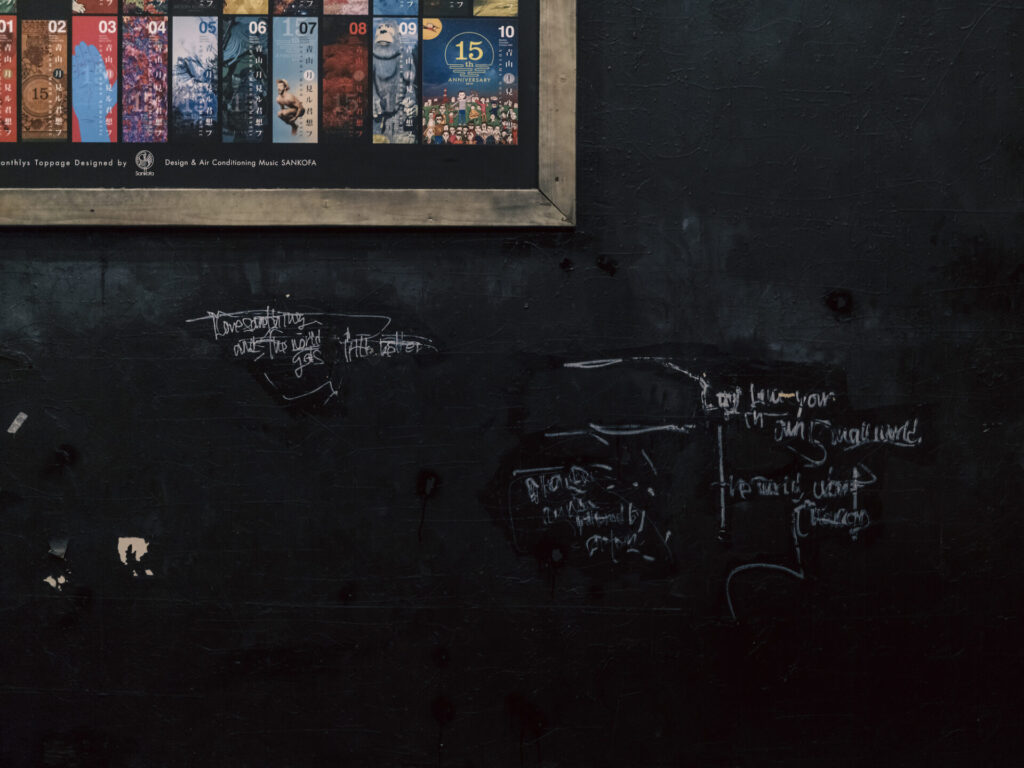
Shigeta: One of my acquaintances, who knew me in the 1990s when I leaned toward underground music, once said, “You’ve changed so much,” and “You’ve gone to the “mass” side.” But I don’t understand the idea of having oneself satisfied with being niche when you create something great. If you believe you create something good for people, you should not set the limit for the number of users. If there are people who want to use it or feel empathy for it out there, creators should make all the effort to bring the products to as many people as possible. That is the proof you create products with confidence. Some say, “The products begin to be “consumed” once the scale grows,” but whether it is consumed or not depends on whether what you are doing is genuine or fake. Even though it is picked up by the mass media and “consumed” many times, as long as it is genuine, the essence is unshakable. If it collapses after consumed, it means what you are doing is not genuine in the first place.
Yamasaki: To be on the “mass” side doesn’t mean to make things black and white. The conflicts happening worldwide today are also a battle between gray and gray, jet black and jet black, and, in any case, the result is black. I think building the future means building a bridge that is crossed by saints, evils, hypocrites, adults, children, and everyone else. It should not be like, “This person is OK, but that person is not.” Excluding no one, we must build a bridge everyone can cross to build the future. I don’t know what the bridge I am building will look like, but I am determined to build it in a place in sunlight.
——I really like the idea of building a bridge everyone can cross. I feel the idea is reflected in Mr. Yamasaki’s choice of words. You rarely use the words that only certain people can understand.
Yamasaki: I don’t understand difficult things, either. But the excellent things are often expressed in easy-to-understand words, right? It isn’t easy to penetrate the world without using ideas and things everyone can understand. So, perhaps words that anyone can understand will change the world. I wish I could find the magical words everyone can use but are yet to be created.
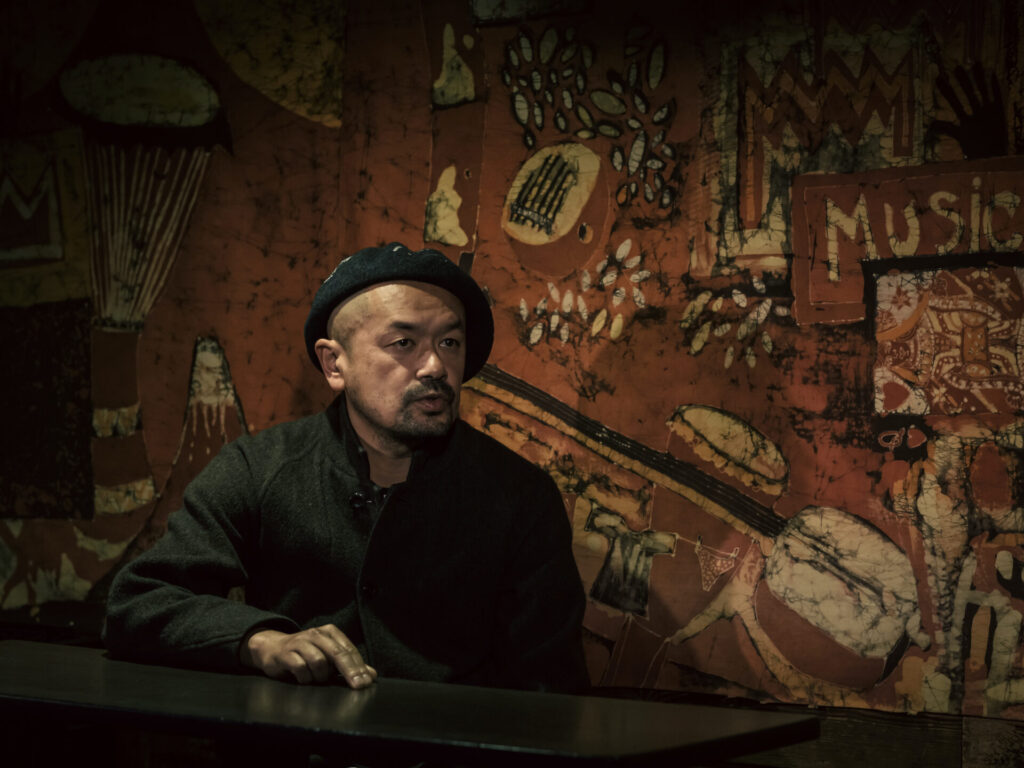
Shigeta: I once saw a work at your exhibition saying, “I know it ≠ You don’t know it ≠ I am right about it (I know it; You don’t know it; I am right; Those are not equal).” When I saw it, I was about to shout, “Yes, that’s the thing!” I think people who try to find differences in knowledge by comparing themselves and others generally think about things and communicate based on the assumption that they are right. On the other hand, people who can think in a way, “You and me are different, and I am not always right,” might have rich humanity. I am sure such people can enjoy doing something together with others.
——People who can reach such a profound awareness must be rare.
Shigeta: Whenever we discuss the view on life and death, people often ask, “Is the purpose of thinking about life and death to make us not afraid of death eventually?” I don’t think that way at all. In my long life, there are times when I am afraid of death and not. Thoughts and values don’t need to stay the same. Instead, it should change continuously, and such continuous change has universal value for humans. Based on this premise, in order to acquire rich humanity, it is essential to keep your values and opinions consciously fluctuating and shifted in a good sense. To do so, it is necessary to face people with an attitude of “I am not always right.” By taking the value of other people into yourself, you can convey your feelings to others in a different way from unilaterally imposing opinions. Repeating this process will form thoughts of life and death and grow awareness to face the present time. I feel such wisdom for life is scattered around in the words of Mr. Yamasaki.
Yamasaki: Speaking of life and death, honestly, I am afraid of dying. It is natural to fear it because we have never experienced it. I think the meaning of life is to be scared of something and struggle. I feel I’m blessed because I have such emotional fluctuations. The ups and downs of emotions make me bring out the word. Words don’t come out at all when your emotion is flat or content. When you are happy, you are satisfied by just hugging somebody, and there is no need to write something. But I, who make a living by words, must be different. Feeling loneliness and squeezing words somehow to make up for something missing may prove that I am alive.
Although my father is in his mid-80s now, the pictures he draws are getting better and better. They don’t sell well at all; first of all, he doesn’t care about selling them. He is the kind of person who spends all his time on drawing. Usually, people of his age quit drawing if their pictures don’t sell well. The other day, I heard that his picture, which he spent about a year drawing, was not selected for a public exhibition, and I came by his atelier to see how he was doing. He was so angry and tearing up the picture. Plus, with a nosebleed. What I thought seeing him like that was, “Man, my dad is the best!” When I get older, I will be happy if I can face creativity with his mentality. Although the definition of successful people varies from person to person, my father tearing up his picture was one of them for me. I was inspired by my father living fiercely in the present.
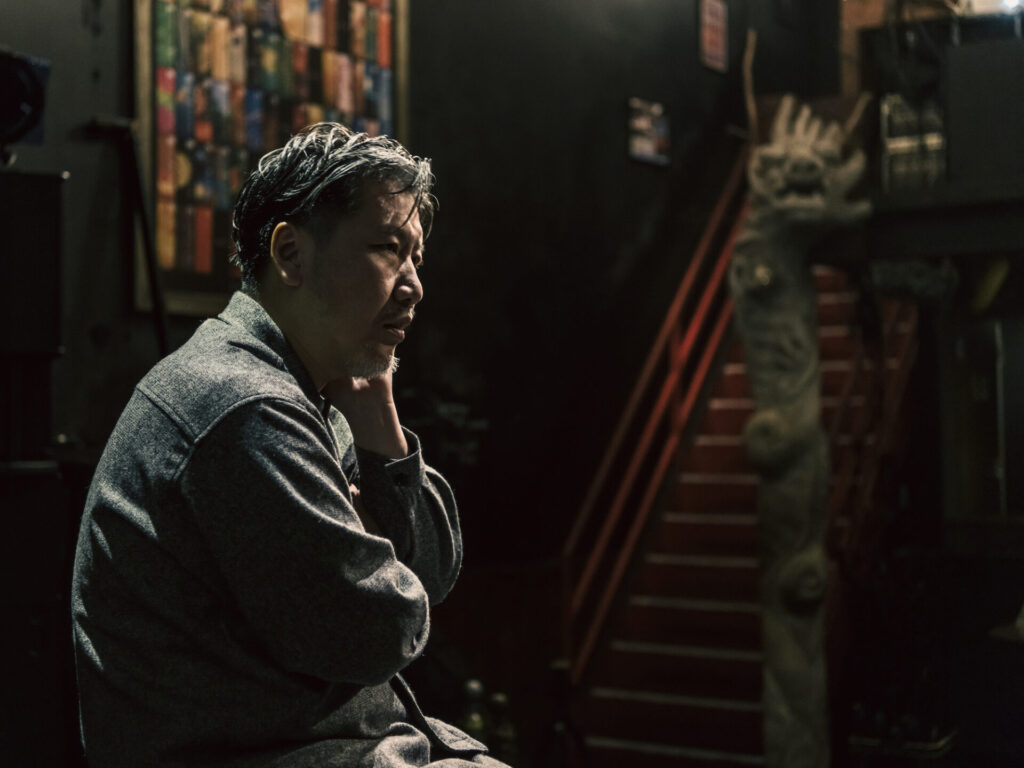
“I want to build a relationship with Mr. Yamasaki to expand the culture in society and bring it to a higher level of maturity (Shigeta).”
——Could you tell us about what you two are planning to do?
Shigeta: I have been asking Mr. Yamasaki if he would work with me to develop products, and we have talked about things like approaches to fragrance and what sort of scents we should extract. But since the world we live in now is different from that of mass production and consumption,
through the conversation with Mr. Yamasaki, I thought a lot about how to reconcile the desire to create something and the contribution I can make to society by creating it.
What came to my mind was the relationship between Mr. Yoshiharu Fukuhara, a former chairman of Shiseido Company and the author of “Kigyō wa bunka no patoron to narieru ka (Can companies be a patron of culture?),” and Mr. Sadao Watanabe. I saw Mr. Watanabe’s Christmas concert in Orchard Hall in Shibuya when I was in my second year in junior high school, and they gave us a sample bottle of Shiseido’s perfume, which was on a TV commercial then, as a souvenir. Holding it in my hand, I felt very romantic and sensed the scent of noble culture. Although I never thought I would be engaged in fragrance-related business at the time, now that I’ve had the opportunity, I would like to build a relationship like the one between Mr. Fukuhara and Mr. Watanabe. Mr. Yamasaki was the first person who came to my mind as a partner.
——Mr. Yamasaki, what kind of challenge will this collaboration be like for you?
Yamasaki: Two things really impressed me with Mr. Shigeta’s offer. One is that he said he would become a “megaphone” for me.
The other is that he wants to collaborate with me to create a society where ordinary citizens, not only a handful of rich people and influencers, create and transmit culture.
I sometimes unexpectedly receive good reputations and responses for my paintings and collaborations with fashion brands. The reason why I could not expect such reactions was because I had never experienced it. You can’t tell what chemistry you will get unless you try it. So, I’ve come to think the era of choosing the country for the next travel is over.
Nowadays, I am more interested in creating something with someone and how the results will turn out. So, I am excited to see what chemistry will happen in this project. I have been thinking about words for this new challenge since I got the offer, but words don’t come out when I try to say something good. I take various ideas into my head, then dry them, and finally get a drop of water dripping down. That’s how I get the words. I believe this process will someday make me reach the real words and extraordinary ideas. So, I want to discover words that would not be created without this opportunity.
Shigeta: Although I feel Mr. Yamasaki and I have many things in common, his idea of “Words are born out of loneliness” starkly contrasts mine. I always create something for someone else. Rather than facing myself, I want to help those in need around me and the people special to me. So, in my case, what I always face is somebody and something “outside” myself.
But, at the same time, such differences make me excited to work together with him. Now, I face and receive various things from Mr. Yamasaki. In this way, I want to build a relationship like that between Mr. Fukuhara and Mr. Watanabe to expand the culture in society and bring it to a higher level of maturity. Receiving Mr. Yamasaki’s words, I work as a “megaphone” for him. Talking with Mr. Yamasaki today, I have understood that is what I want to do.
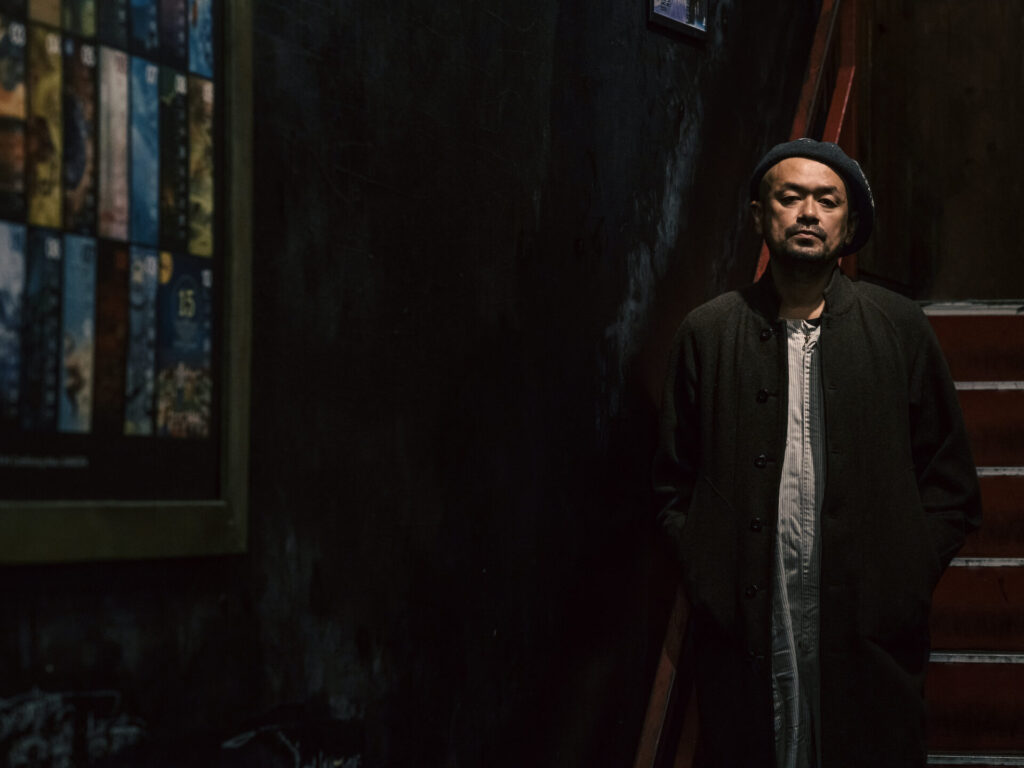
This is GHOST / F.I.B JOURNAL
Seco-han(by Calm & Punk)/ F.I.B JOURNAL
Profile
-
Madoki Yamasaki
Born in Kawasaki City, Kanagawa Prefecture, in 1970, Yamasaki started his musical career as a self-taught musician in his teens. He joined with musicians like Tsutomu Kurihara, a member of LITTLE CREATURES, to form Noise On Trash and made his debut in 1996. In 2003, he formed F.I.B JOURNAL after collaborating with the fashion magazine commons&sense” and has released many works described as “jazz-punk.” Besides musical activities, he is also active as a poet. He has published two poetry books and is currently working on the third one. He is also the leader of “BOOKWORM,” a public reading session held irregularly to “share the favorite words.” He also energetically presents works using the methods of graffiti and tagging. He recently collaborated with several fashion brands. In 2022 and 2023, he held a solo exhibition of his tagging works, which he made in his atelier, at galerie-a in Minami-Aoyama, Tokyo. He is planning to have another solo exhibition in 2024.
-
Masakazu Shigeta
After working as an engineer in the music industry, Shigeta began his career as a cosmetics developer in 2001. Since 2004, he has produced a variety of cosmetics brands in the healthcare business of Nitto Denka Kogyo Co., Ltd., a metal surface treatment company founded by his great-grandfather.
In 2017, he founded Osaji, a skincare lifestyle brand, and became the brand director. He also produced Kako, a specialized shop for home fragrances perfume in Kuramae, Tokyo, in 2021, and a combined shop of Osaji, kako, and a restaurant enso in Kamakura, Kanagawa, in 2022.
In 2023, using Nitto Denka Kogyo’s skills, he produced a pottery brand, HEGE, and he also opened a restaurant serving rice porridge, HENGEN, in Kita-Ueno, Tokyo.
Publications
Taberu Biyou (Eating for Beauty) (SHUFU TO SEIKATSU SHA, 2024)
42-Sai ni Nattara Yameru Biyou, Hajimeru Biyou (Beauty cares to quit and start when you turn 42) (Takarajimasha, 2022)
Information
F.I.B JOURNAL
F.I.B JOURNAL is one of Japan’s leading poetry jazz bands, celebrating its 20th anniversary in 2023. In 2005, Katsuhiro Mafune, a support bassist of EGO-WRAPPIN’, and a drummer Naoya Numa joined, making F.I.B Journal a trio band. So far, they have released seven albums: five by the trio, one by the orchestra formation, and one with Kaori Takeda, the vocalist of a music unit TICA. Their most recent work, “This is GHOST,” which is the sampling and sound collage of phrases in previous works, was released on a distribution platform in the fall of 2023. Yamasaki himself created the artwork by tagging.
-
Photographs:Eisuke Komatsubara
-
Text:Masahiro Kamijo
-
Location:MOONLOMANTIC
NEWS LETTER
理想論 最新記事の
更新情報をお届けします
ご登録はこちら
ご登録はこちら
メールアドレス
ご登録ありがとうございます。
ご登録確認メールをお送りいたします。
